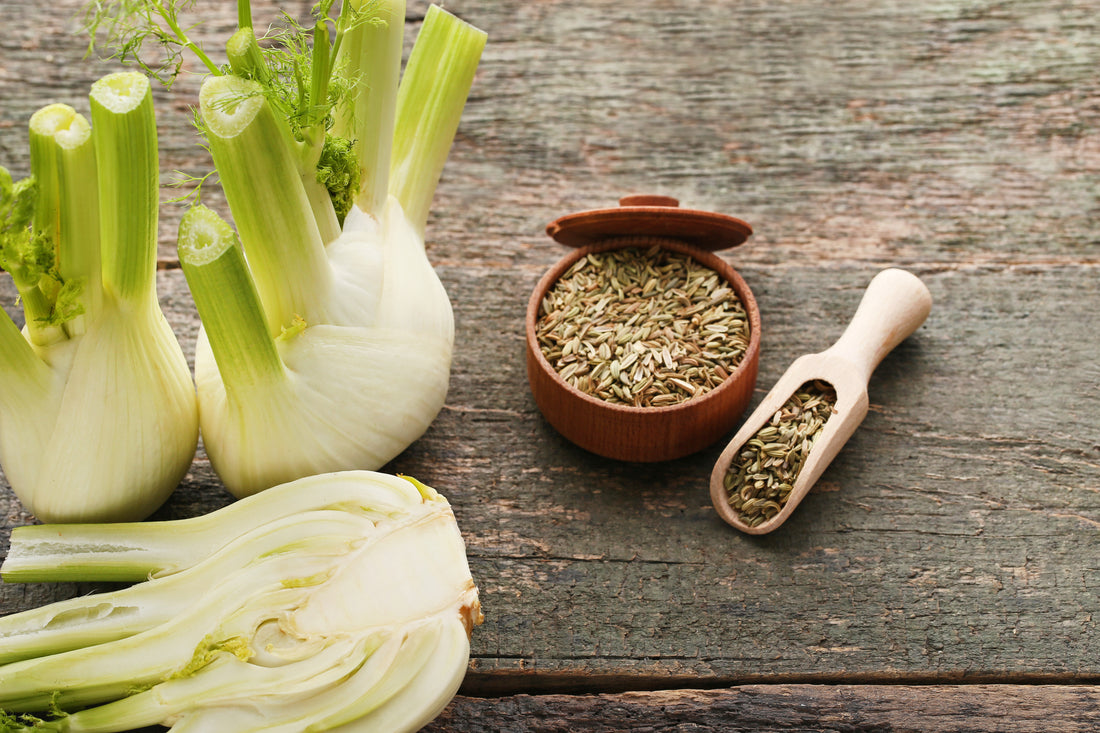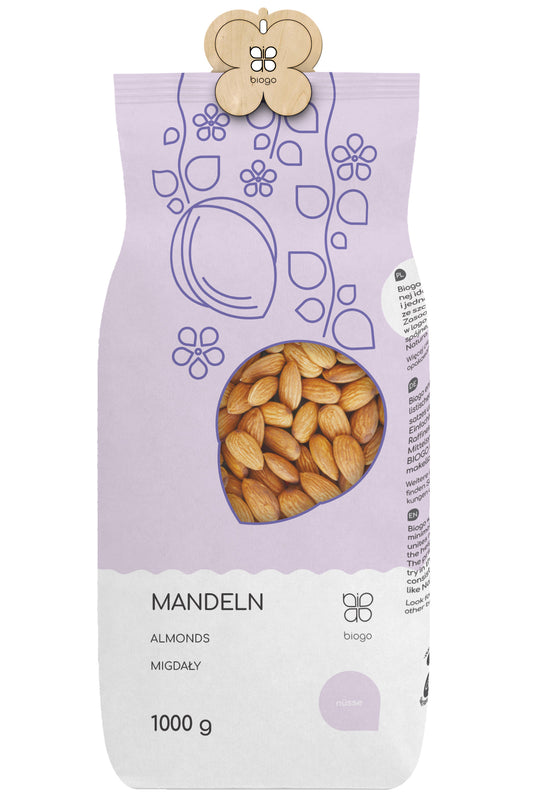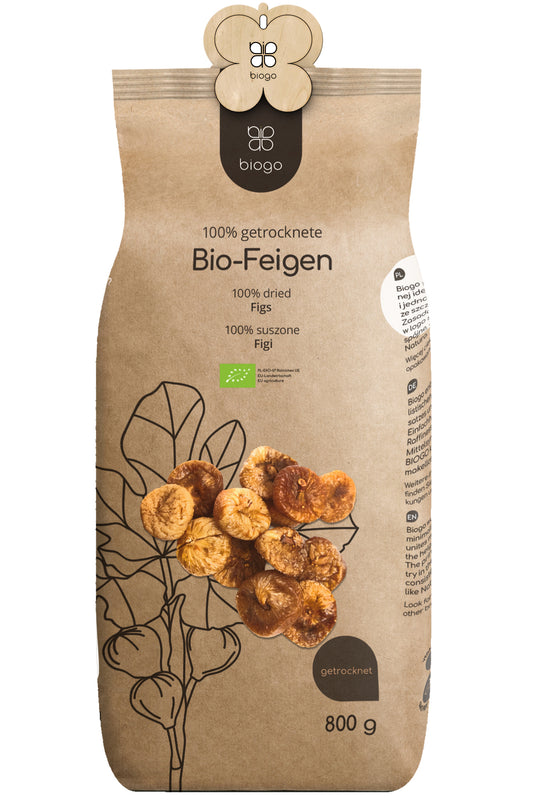Contents:
- Properties of fennel
- Uses of fennel fruit tea
- Fennel fruit tea – beneficial during pregnancy and breastfeeding
- How do you prepare a fennel fruit infusion?
Fennel fruit tea is an herbal tea recognized as a natural product for combating various types of stomach problems such as bloating, infant colic, constipation, and many others. It also has properties that help relieve menstrual discomfort, reduce stress-related symptoms, improve sleep quality, and contribute to the regulation of high blood pressure.
Properties of fennel
Fennel , also known as fennel, has been known and used medicinally since ancient times. The plant is a rich source of ingredients such as essential oils, flavonoids, and many vitamins, limonene, iron, and calcium. This unassuming plant is used to make medicinal products such as herbal tea made from fennel fruit, dried infusions, ointments, drops, and more. Fennel is especially valued for its antispasmodic properties. Its other properties include:
- Relief of symptoms related to the digestive system,
- Relief of menstrual discomfort,
- Relief from headaches,
- helps relieve muscle pain,
- counteract insomnia,
- Combating unpleasant breath odor (so-called halitosis).
Uses of fennel fruit tea
The most common product made from fennel is fennel tea . It has a delicate, slightly aniseed, and sweet aftertaste. It has anti-inflammatory, antispasmodic, and antioxidant properties. Regular consumption of fennel tea also supports our body in the fight against colds or flu; it has a calming effect and is recommended as a support for stressed and nervous people.
In addition, it is a natural, safe and extremely effective product in the fight against:
- indigestion,
- Gastrointestinal reflux,
- in the treatment of constipation and flatulence, as it regulates intestinal function,
- Colic – even in infants,
- Cramps that occur during menstruation,
- Insomnia,
- bad breath,
- Respiratory tract infections by increasing the volume of bronchial secretions and simultaneously reducing their density, thereby facilitating expectoration and accelerating recovery,
- helps to lower high blood pressure,
- supports the production of breast milk,
- inhibits the growth of fungi and other pathogenic microorganisms,
-
Colds because it has antipyretic and diaphoretic properties, - Thanks to its diuretic properties, it supports the treatment of diseases of the urinary system.
Fennel fruit tea – beneficial during pregnancy and breastfeeding
During pregnancy, women often experience unpleasant stomach upsets, constipation, and bloating. Fennel has been used in natural medicine for centuries to relieve these problems. Furthermore, dill tea during pregnancy has a positive effect on regulating blood pressure, a common problem for expectant mothers. Importantly, fennel fruit tea is also beneficial during breastfeeding. It helps minimize the risk of indigestion in a breast-fed baby.
Fennel has a calming effect on the baby's digestive system, which can provide relief for both the infant and the mother. Therefore, it's worth considering incorporating dill tea into your daily diet during pregnancy and breastfeeding. It's a natural and safe way to improve the well-being and health of both expectant mothers and their children.
How do you prepare a fennel fruit infusion?
Preparing the infusion is very simple: Simply add a teaspoon of the herb to a glass of boiling water (approx. 250 ml) and let it steep, covered, for about 10-15 minutes. After this time, the infusion can be strained and is ready to drink. If you have dried fennel berries with visible whole berries, you can grind them (e.g., in a grinder) before pouring boiling water over them immediately before use. Uncrushed berries have a less intense aroma.
It is recommended to drink fresh, warm dill tea once or twice a day after meals. When purchasing herbal tea, remember to choose organically grown products. This ensures that the product is of high quality and that the plants used in its production were hand-picked from the wild in a certified ecologically clean zone or grown on organic farms.
THE PUBLISHER'S CHOICE
Dried dates 1 kg BIOGO
- £4.00
£5.00- £4.00
- Unit price
- / per
Almonds 1 kg BIOGO
- £11.00
£13.00- £11.00
- Unit price
- / per
Peeled sunflower seeds 1 kg BIOGO
- £3.00
£4.00- £3.00
- Unit price
- / per
Dried White Mulberries 500 g ORGANIC
- £6.00
£7.00- £6.00
- Unit price
- / per
Dried organic mango 400 g BIOGO
- £10.00
- £10.00
- Unit price
- / per
Popcorn (corn kernels) organic 1 kg BIOGO
- £6.00
- £6.00
- Unit price
- / per
Organic Ground Turmeric 500 g BIOGO
- £6.00
- £6.00
- Unit price
- / per
Milk thistle seeds 1 kg BIOGO
- £4.00
- £4.00
- Unit price
- / per
Dried organic figs 800 g BIOGO
- £27.00
- £27.00
- Unit price
- / per
Bag #changezbiogo Cotton v.2
- £3.00
- £3.00
- Unit price
- / per






































































































































